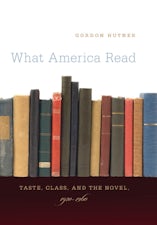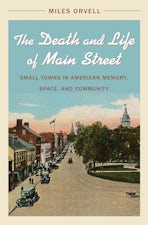The Real Thing
Imitation and Authenticity in American Culture, 1880-1940
Twenty-fifth Anniversary Edition
By Miles Orvell
With a new preface by the author
420 pp., 6 x 9, 43 halftones, notes, bibl., index
-
Paperback ISBN: 978-1-4696-1536-3
Published: August 2014 -
E-book EPUB ISBN: 978-1-4696-1537-0
Published: August 2014 -
E-book PDF ISBN: 979-8-8908-4795-9
Published: August 2014
Buy this Book
- Paperback $39.95
- E-Book $24.99
For Professors:
Free E-Exam Copies
Awards & distinctions
1990 John Hope Franklin Publication Prize, American Studies Association
The twenty-fifth anniversary edition includes a new preface by the author, looking back on the late twentieth century and assessing tensions between imitation and authenticity in the context of our digital age. Considering material culture, photography, and literature, the book touches on influential figures such as writers Walt Whitman, Henry James, John Dos Passos, and James Agee; photographers Alfred Stieglitz, Walker Evans, and Margaret Bourke-White; and architect-designers Gustav Stickley and Frank Lloyd Wright.
About the Author
Miles Orvell is professor of English and American studies at Temple University. He is the author of The Death and Life of Main Street: Small Towns in American Memory, Space, and Community.
For more information about Miles Orvell, visit
the
Author
Page.
Reviews
"This intriguing cross-cultural look at the material world examines the day and age of the facsimile: why we copy rather than 'create,' at one level; and at another, what is reality?"--The New York Times
"The Real Thing is stippled with descriptive insights that will reward any reader interested in the continuing debate between copying and creating the 'real thing.'"--Pennsylvania Magazine of History and Biography
"A rich and complex study. It casts new and revealing light on the cultural transformations of the early 20th century. By focusing on the tensions between authenticity and imitation within artistic forms, Orvell provides a new and challenging context for understanding figures too easily subject to formulaic interpretation."--The New Republic
"A smoothly written, imaginatively researched study. . . . Will reward readers with fresh and stimulating insights into the recent past and, even more importantly, into today's 'disposable' American society."--Kirkus Reviews



